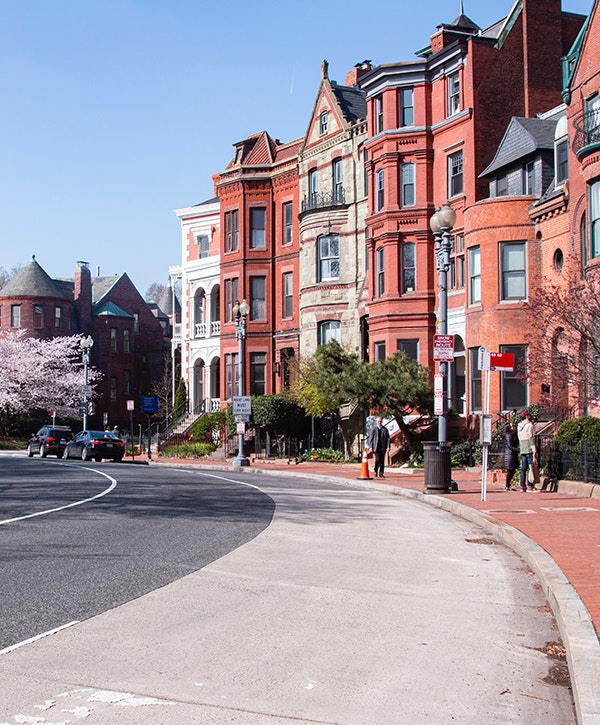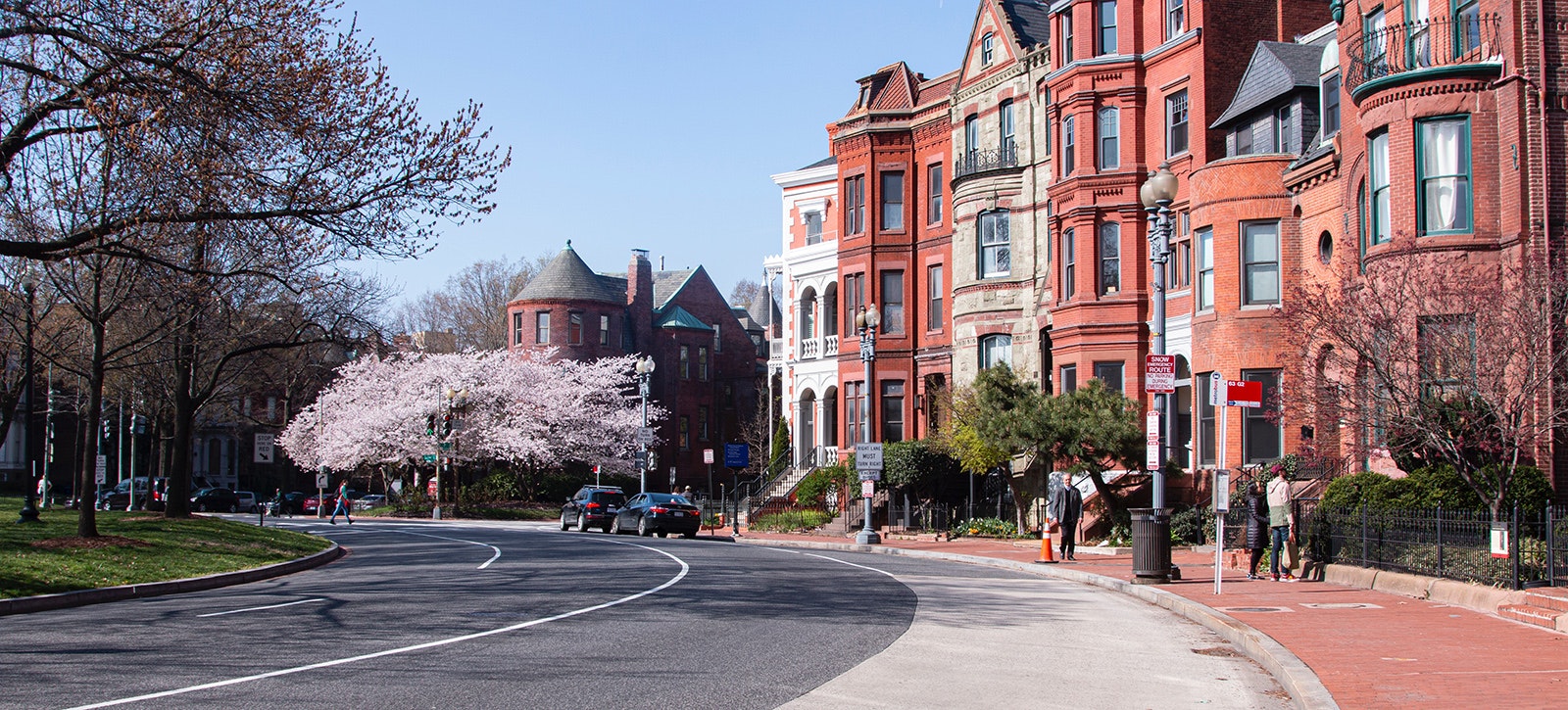As concerns over recent increases in crime continue in the District, some city leaders have defaulted to a knee-jerk reaction, opting yet again to increase incarceration over taking a forward-thinking, data-driven approach to improving public safety. Last week, the D.C. Council rushed to approve an emergency bill that, among other troubling provisions, would add to the number of children and adults who will be detained while awaiting trial. Mayor Bowser and Councilmember Pinto, who dropped the bill just four days before the vote, have claimed that the emergency law is necessary. However, D.C. residents will certainly remember other times the city has tried to use incarceration as a quick fix rather than put in the work to truly improve public safety. It doesn’t work, and invariably harms the most vulnerable families and communities in the District.
More Incarceration in D.C. Does Not Advance Public Safety


The District’s incarceration rate of 590 people per 100,000 residents remains higher than the national average.
Although the District has made progress in reducing its bloated prison and jail populations, almost 4,000 D.C. residents are still incarcerated in its jails and federal prisons. The District's incarceration rate of 590 people per 100,000 residents remains higher than the national average. This high incarceration rate does not impact everyone equally: Black residents are 21 times more likely to be in prison than white residents and 17 times more likely to be locked up in jail.
District residents are acutely aware of the harm caused by mass incarceration. Indeed, the Council’s vote last week followed a public hearing that saw an outpouring of disapproval on a similar bill introduced by Mayor Bowser a couple of months ago. Residents, community leaders, advocates, and even D.C Attorney General Brian Schwalb challenged various components of the Mayor’s expansive and punitive crime bill, on the basis that it would hurt kids and families while failing to advance true public safety solutions. In particular, the proposals for harsh new mandatory minimum penalties, and penalty enhancements for crimes committed inside transit locations and parks were criticized as counterproductive and ineffective. Likewise, the Mayor’s proposal to gut the District’s successful Second Look law was condemned as a plan that would significantly worsen public safety.
This change is unnecessary and cruel, a solution looking for a problem that does not exist.
While the overwhelming opposition to the mayor’s bill led to those specific proposals being left out of the emergency bill, the Council doubled down on expanding the use of pretrial detention – despite extensive evidence showing that increasing pretrial incarceration will have little to no effect on reducing crime. The legislation passed last week makes it easier for judges to detain both children and adults who are charged with certain crimes. The change for the latter relies on the overly broad definition of “Crime of Violence,” which includes numerous offenses that may not involve force or injury to another person. For example, under the new law, people charged with pickpocketing (“robbery”) or breaking into an unoccupied shed (“burglary”) who have never been charged with a crime before will now face a presumption of detention, and will be substantially more likely to be locked up in jail without having been found guilty of a crime.
This change is unnecessary and cruel, a solution looking for a problem that does not exist. Prior to passage of the emergency law, judges already held broad authority over when to hold people pretrial. And the data makes clear that the vast majority of people released pretrial in the District (93%) remain arrest-free during their pretrial period, and just 1% are arrested for a violent offense.
In arguing for her proposal, Councilmember Pinto falsely cited New York’s bail reform – which eliminated pretrial incarceration for most misdemeanors and non-violent felonies – as being responsible for an increase in recidivism. In fact, New York’s successful and life-saving bail reform law has provided ample evidence that expanding pretrial release does not increase recidivism, and can even reduce it, in addition to keeping people safe and keeping families together.
The expansion of pretrial detention will be deeply harmful to communities, draining resources and destabilizing lives, and may in the long-run actually increase crime.
The expansion of pretrial detention will be deeply harmful to communities, draining resources and destabilizing lives, and may in the long-run actually increase crime. Even a short-term incarceration pretrial can lead to loss of employment, housing, and can strain community ties, elements crucial for social stability and reintegration once people return home from incarceration. Multiple recent studies show that pretrial incarceration actually increases the likelihood of future arrest. Moreover, confining more individuals in a D.C. jail in crisis, with a documented history of brutal conditions and facing a lawsuit over inadequate medical care, is a misguided response that further undermines the safety of D.C. residents.
History shows us that responses rooted in punishment rarely create or sustain long-term public safety and thriving communities. In the 80’s and 90’s, fueled by similar rhetoric about increases in crime, D.C. embarked on a mass incarceration experiment with harsh mandatory minimums for drug-related and serious offenses. Instead of curbing the violence, these policies resulted in an explosion of the jail and prison population, leading D.C. to have one of the highest homicide and incarceration rates in the country. The consequences of these policies have been borne almost exclusively by the District’s Black communities, and still contribute to ongoing social challenges and injustice.
Forty years on, we now have ample evidence showing that incarceration is one of the least effective and most expensive approaches to public safety. Research shows that tougher penalties and harsher sentences do not deter crime. And when it comes to curbing gun violence, prevention is far more powerful than punishment.
Earlier this year, residents came together in a series of roundtables to share their personal experiences with gun violence and offer potential solutions. Their frustration and grief were palpable as they criticized the lack of a clear strategy by the government and poor coordination between agencies. Residents want more community-based interventions, better services along with increased mental health resources, and further support for grassroots organizations effectively working on violence prevention. The call was clear: D.C. needs an approach that prioritizes investment in community health and wellness, not punishment and incarceration.
Instead of resorting to failed policies of the past that we know don’t work, we should be listening to residents and following the research and best practices to pass and implement these data-driven recommendations.
District leaders have the information and resources to pursue better policies that will truly improve public safety: D.C. has already conducted a comprehensive study of gun violence in the district and formulated recommendations for reducing violence. D.C.'s Taskforce on Jails and Justice has also put forth recommendations to overhaul the city’s justice system following years of intensive study and input. Furthermore, the Revised Criminal Code Act (RCCA), the result of a 16-year comprehensive revision process led by the D.C. Criminal Code Reform Commission, would make comprehensive, evidence-based changes to the District’s sentencing and criminal code. Instead of resorting to failed policies of the past that we know don’t work, we should be listening to residents and following the research and best practices to pass and implement these data-driven recommendations.
To their credit, the D.C. Council has incorporated provisions in the emergency bill that would increase data sharing and transparency that will better inform the public about our criminal justice system. However, justice and public safety require sustained and focused efforts. The emergency legislation will be in effect for 90 days, so it’s critical that the District’s leaders take that time to listen and consider what will really keep us all safe.
Tell the world; share this article via...
Get Involved
We need your help to move America forward. Learn what you can do.